Dogs are more than just pets; they’re part of the family. As such, it’s important to keep them safe and healthy. Letting your furry friend finish your dinner leftovers may be tempting, but it’s not always the best idea. Some herbs and spices we regularly use to flavor our meals can actually be toxic to dogs!
It isn’t just the herbs in food we should be mindful of regarding our dog’s health. If you’re an avid gardener with herbs potted in and around your home – knowing which ones are toxic can help keep your canine companion safe.
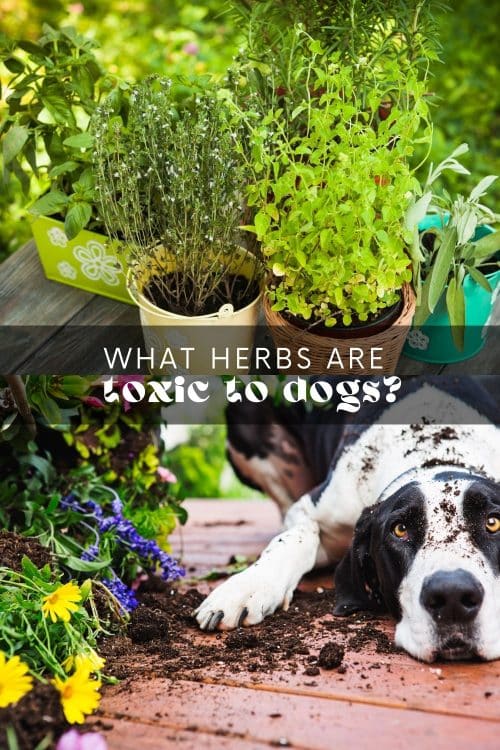
8 Herbs That Are Toxic for Dogs
You may think dogs can eat pretty much anything, but in reality, a dog’s gastrointestinal tract can be quite sensitive. If you’re worried about your pup’s safety or think they may have eaten into something they shouldn’t, it’s best to contact your veterinary hospital.
With this in mind, here are 8 herbs and spices you should keep away from your dog:
- Onion
Onions contain a compound called N-propyl disulfide, which can harm a dog’s red blood cells. Dogs that consume onions can develop anemia, leading to reduced energy levels, liver damage, and other serious health issues.
Even a small amount of onion can harm a dog, with just 100 grams per 20 kilograms of a dog’s weight being enough to cause toxic effects. Symptoms of onion toxicity in dogs include lethargy, weakness, and decreased appetite. All parts of the plant are toxic to dogs. Onion powder is even more toxic than the raw form, so it’s best to keep them away from your pup altogether.
- Garlic
Like onions, garlic contains N-propyl disulfide. The effects of eating garlic are the same as onions, but it’s important to note that garlic is more toxic. Even a small amount of garlic can cause gastrointestinal upset in dogs.
Avoid giving your dog anything containing garlic in any form, including garlic powder!
- Chives
Chives are part of the Allium family, the same as onions, garlic, and leeks. All of these plants are toxic for pets, even in small amounts.
A large number of chives can cause damage to a dog’s red blood cells if ingested, making them more likely to rupture and break down. The effects of chives toxicity in dogs include lethargy, anemia, pale gums, and increased heart rate. It can take a few days for these effects to set in, so seeking medical attention is important if you suspect your dog has eaten chives.
- Marjoram
Italian herbs are a classic seasoning mix found in most kitchens. One common herb found in Italian seasoning is marjoram, which can be toxic for dogs. It has the potential to cause gastric irritation and other adverse effects.
Although the specific toxins in marjoram are unknown, ingesting this herb can lead to gastrointestinal issues such as diarrhea and vomiting in dogs. Other reported side effects include a decreased heart rate, low blood sugar, gastric ulcers, and seizures.
Thankfully, these side effects are fairly uncommon and are only the result of eating large amounts of marjoram.
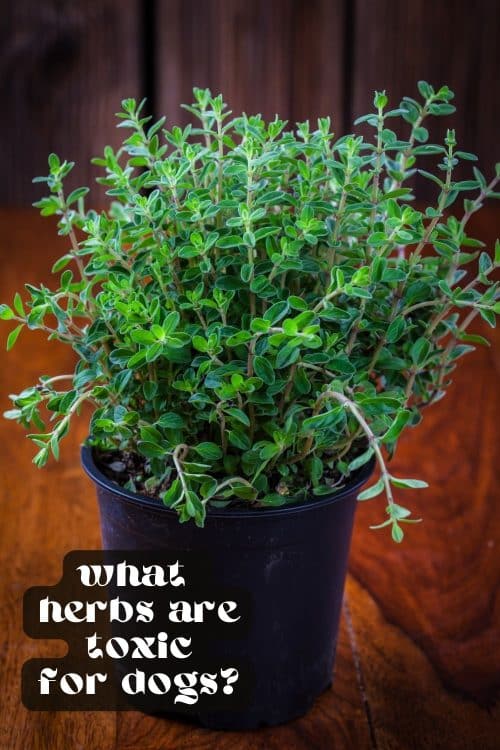
- Bay Leaves
Found in many dishes, bay leaves are a popular cooking ingredient. However, the oils in bay leaves can cause an upset stomach and even internal obstruction in dogs. Bay leaves contain a substance named eugenol. Eugenol is known to cause an influx of fluids in the gastrointestinal tract, which can lead to vomiting.
It isn’t just the essential oils found in bay leaves that can cause issues; it’s also the leaf itself. Dried bay leaves have sharp edges which can choke or cause injury in your dog’s throat or stomach.
It’s a good idea to keep bay leaves out of reach and in high places where your pooch can’t find them.
- Lavender
Lavender is generally considered safe for dogs when used responsibly. However, it can be toxic if ingested in large quantities. The lavender plant contains a compound called linalool, which can harm animals. Although the concentration of linalool in lavender is typically small, ingesting a significant amount of lavender can lead to symptoms such as vomiting, diarrhea, sedation, seizures, and more serious conditions.
Lavender essential oil, which is highly concentrated, contains a high level of linalool. Even a small amount of lavender oil can make your dog sick.
So while lavender may be fine when used in small quantities, don’t keep it somewhere accessible to your pup.
- Oregano
Oregano can be toxic to dogs if ingested in significant amounts. While oregano is not highly toxic, it can still cause digestive disturbances in dogs, such as vomiting and diarrhea. More serious side effects like decreased heart rate, low blood pressure, pet poisoning, and gastrointestinal ulcers can occur in rare cases.
We must note that oregano can benefit a dog’s digestive health in small doses. However, unless under the guidance of your vet, it’s best to avoid feeding your pup oregano if you’re unsure how much is a ‘safe amount.’
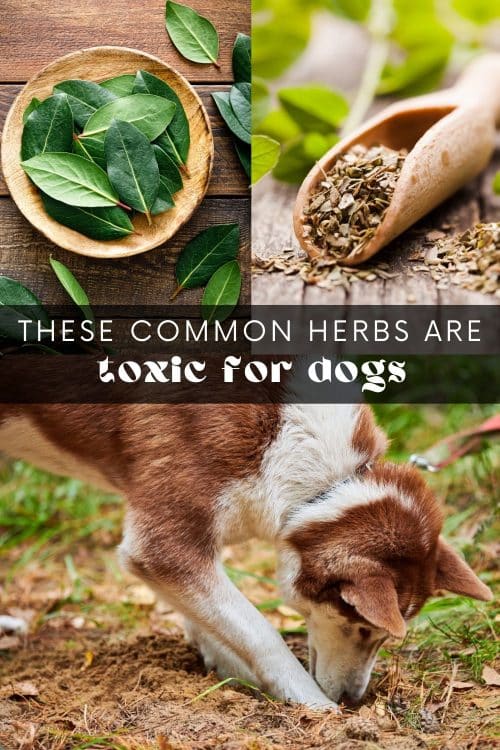
- Hops
Hops can be toxic to dogs due to the presence of certain compounds that cause harm when ingested. One of the main dangers is the potential for your dog’s body temperature to increase rapidly.
The exact quantity of hops that can be fatal to dogs is not known, and certain breeds may be more susceptible to hop poisoning than others. Symptoms of hops ingestion in dogs include redness around the mouth, excessive panting, and abdominal pain.
If your doggo eats hops, it’s best to contact your vet or the pet poison helpline immediately for further advice.
Common House Plants That Are Toxic to Dogs
It isn’t just the fresh herbs and spices you cook with that can cause your pup’s problems. Some well-loved indoor and garden plants can also be quite dangerous to dogs.
Here are just a few of the common plants that can affect your pet’s health if ingested:
- Sago Palm
- Lily of the Valley
- Tea Tree (specifically tea tree oil)
- Aloe Vera (safe if applied topically)
- Azalea
- Tulips
- Daffodil
These are not dog-friendly plants and can cause issues such as skin irritation, liver failure, abdominal pain (as some contain cardiac glycosides), heart problems, and a slow heart rate.
But don’t worry; plenty of non-toxic plants, such as the spider plant and roses, are perfectly safe for your pup to be around!
It’s important to remember that not all herbs and spices, or even indoor plants and outdoor plants, are toxic for dogs. With responsible use and proper knowledge, you can provide your pup with an enjoyable life without worrying about potential health issues!
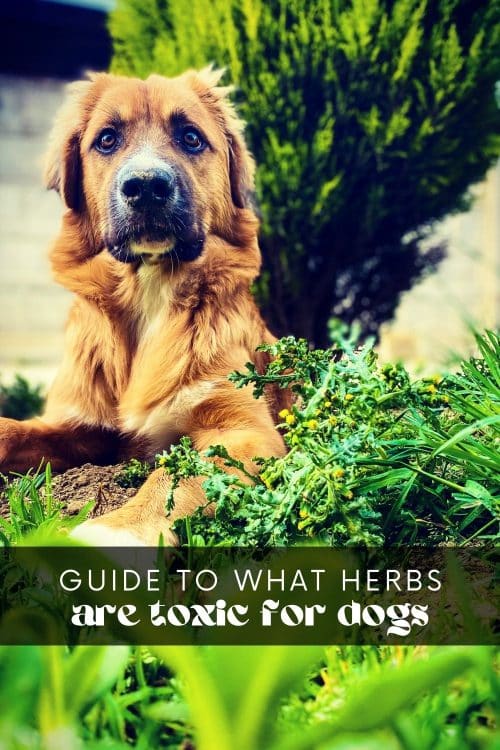
Check out these Herb Posts:
- What Herbs Are Toxic to Dogs?
- DIY Kitchen Window Herb Garden Ideas
- Herb Harvest and Preservation
- Herb Garden Ideas
- How to Get Rid of Gnats on Indoor Herbs
- 12 Best Herb Garden Plants
- 8 Best Indoor Herb Plants
- How to Grow Catmint
- How to Grow Cilantro
- How Long Does It Take Basil to Grow?
- How to Grow Mint Outdoors
- How to Grow Citronella Plants
- How to Grow Mint Indoors
- How to Grow Lavender in Containers
- How to Grow Oregano
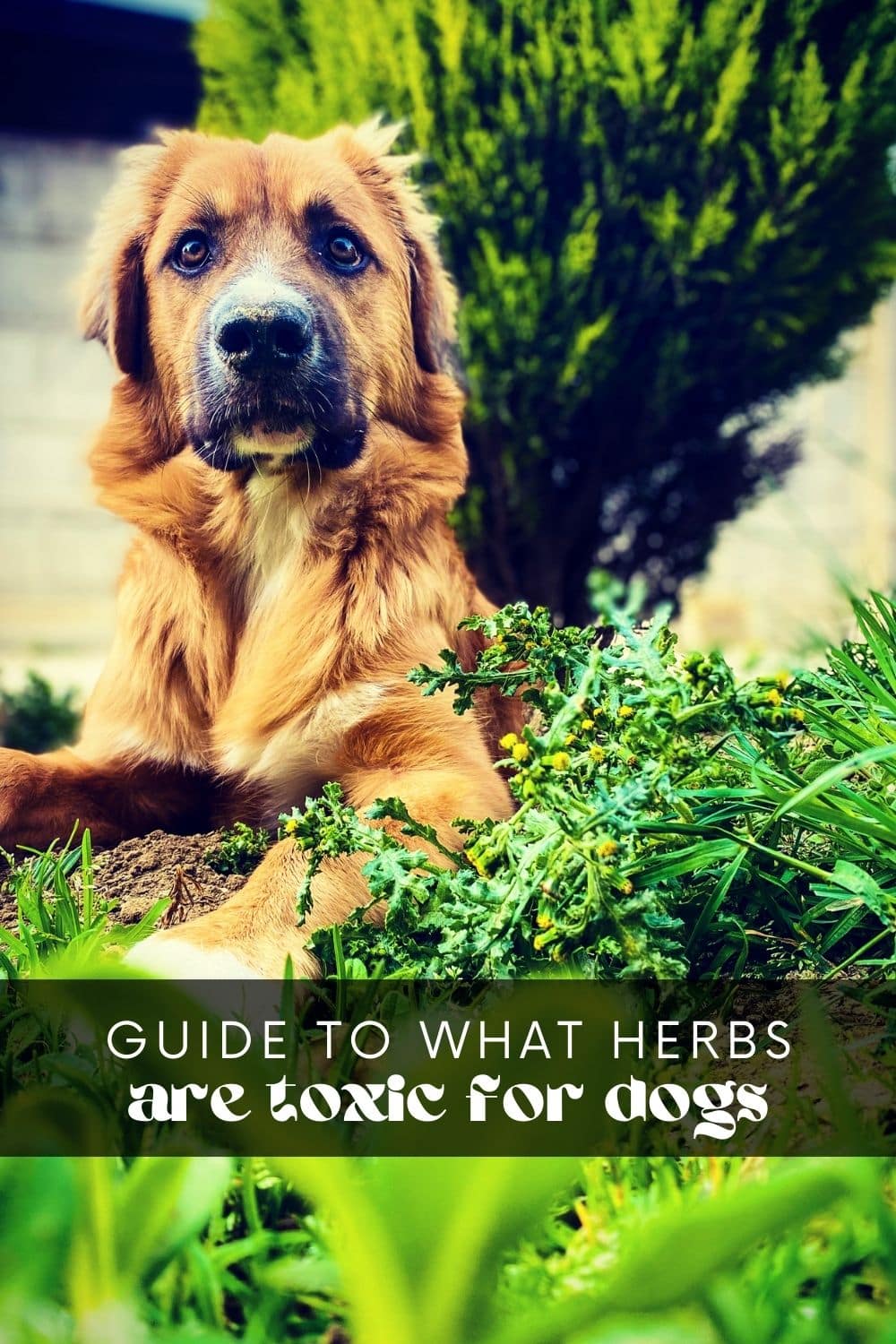
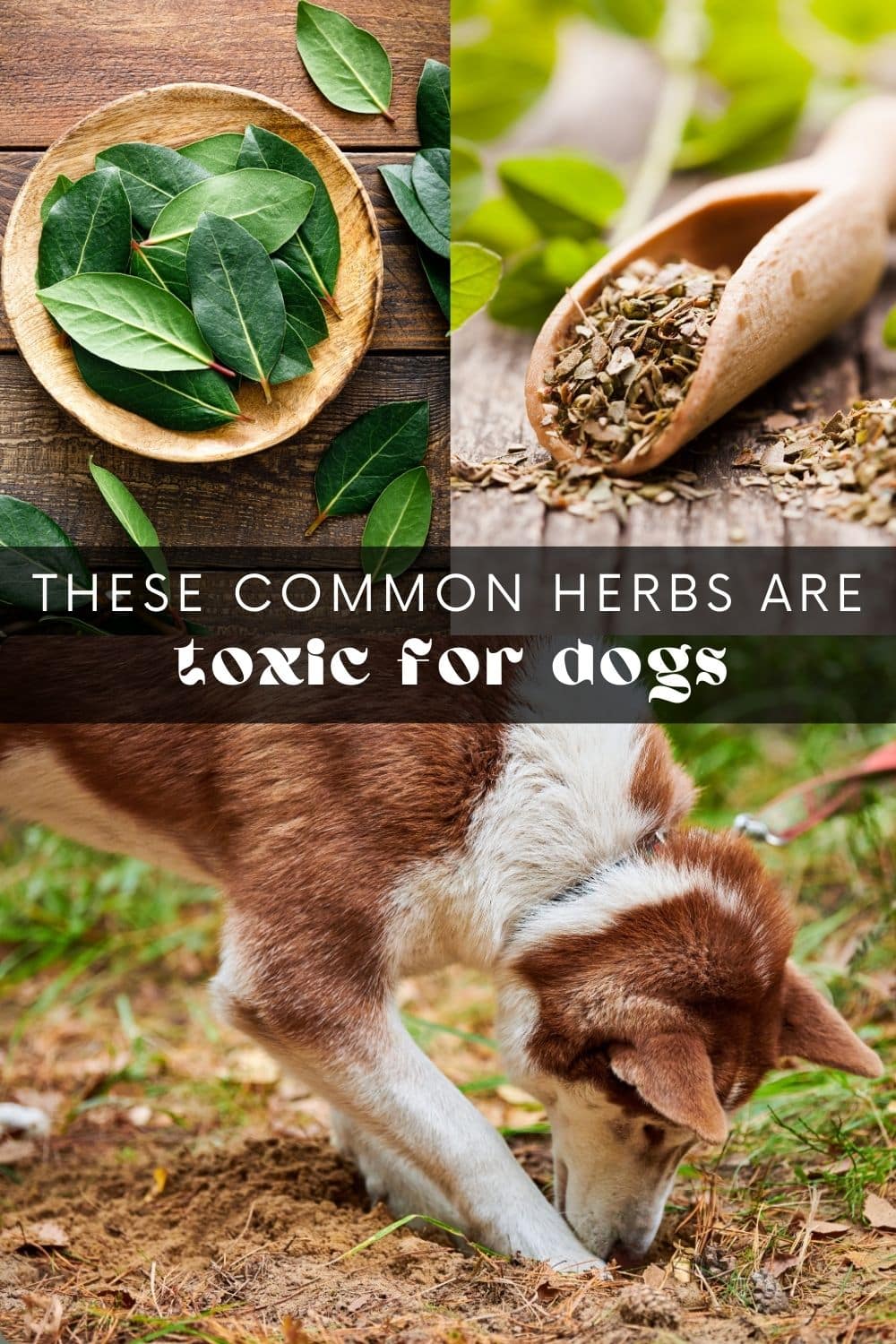
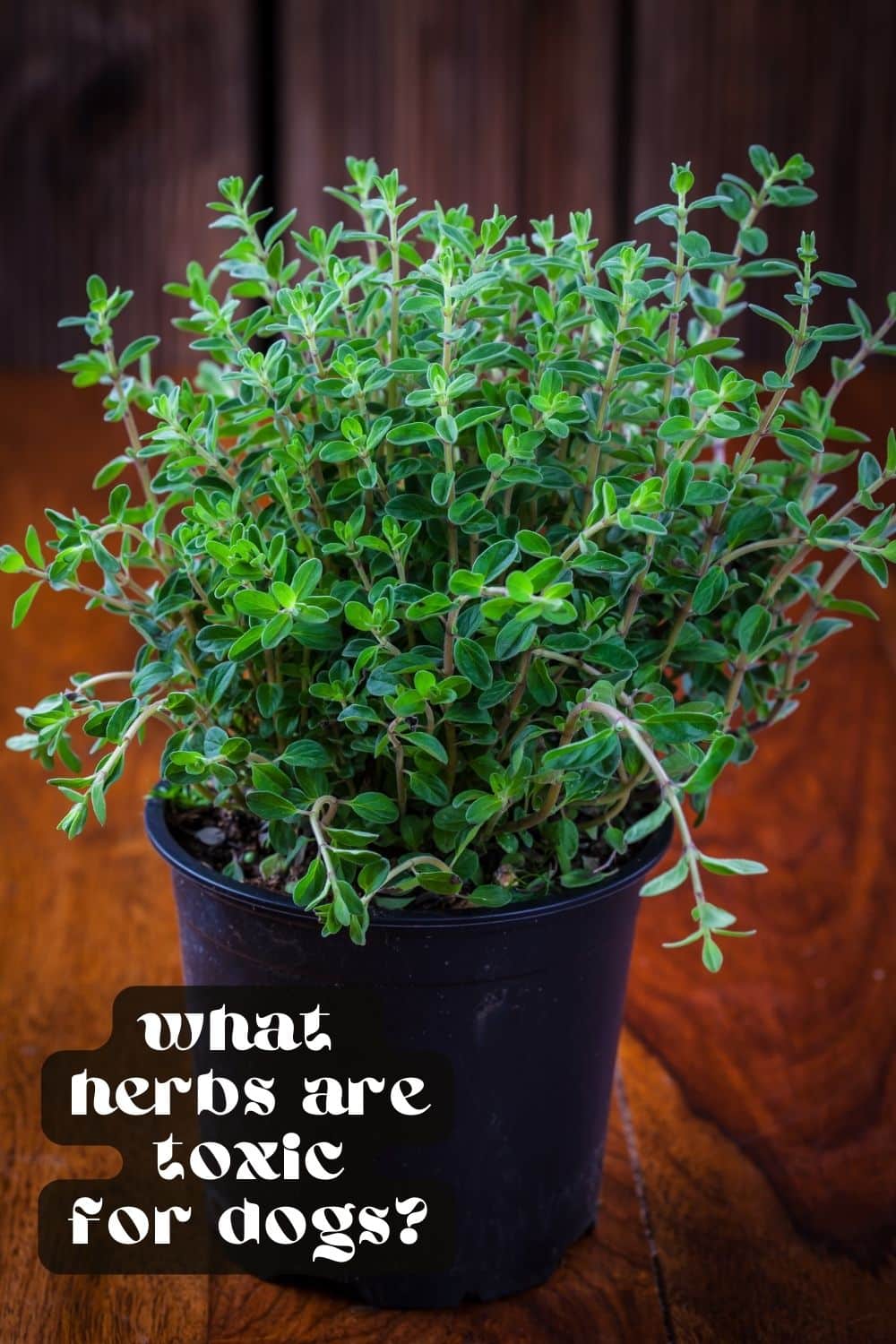
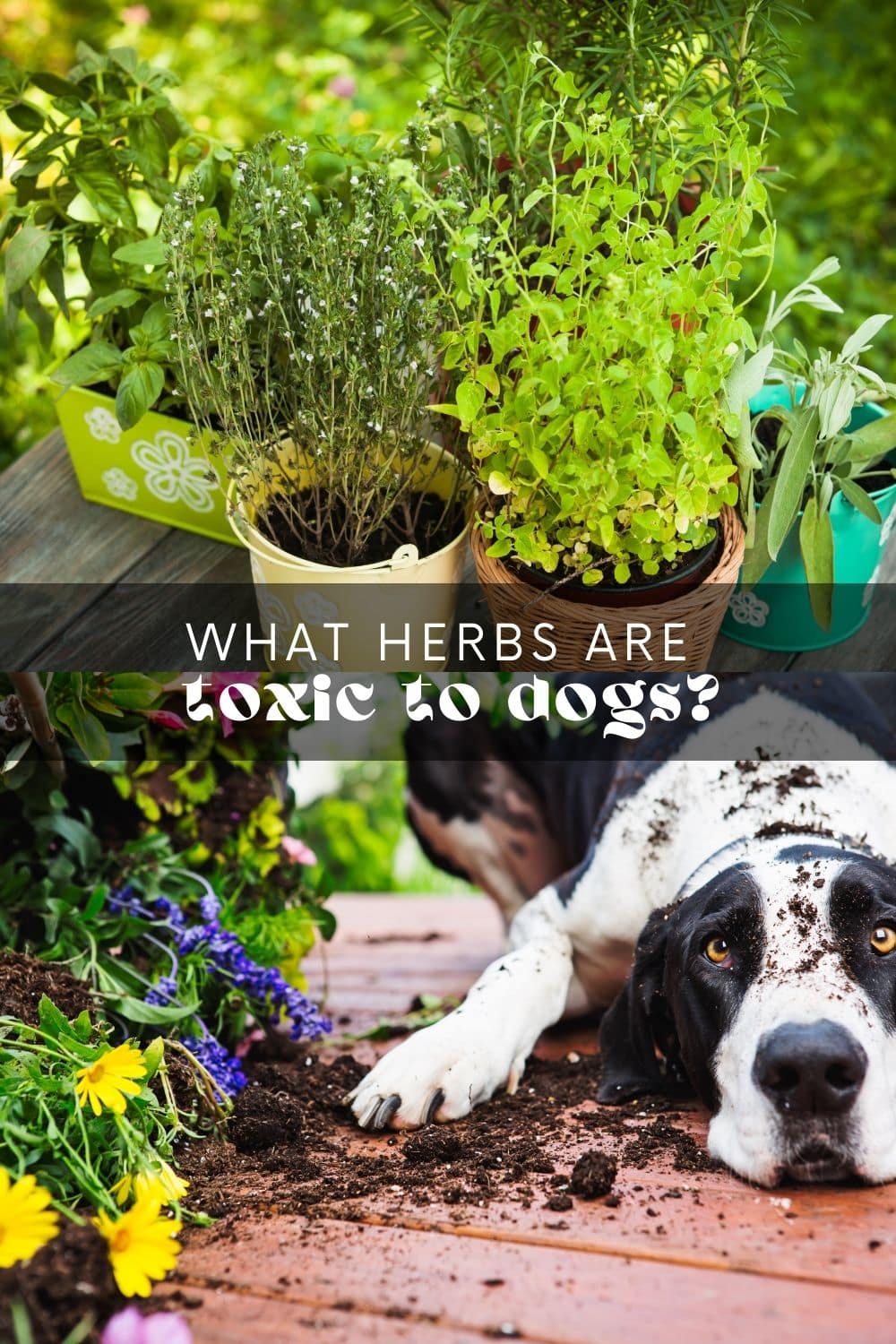
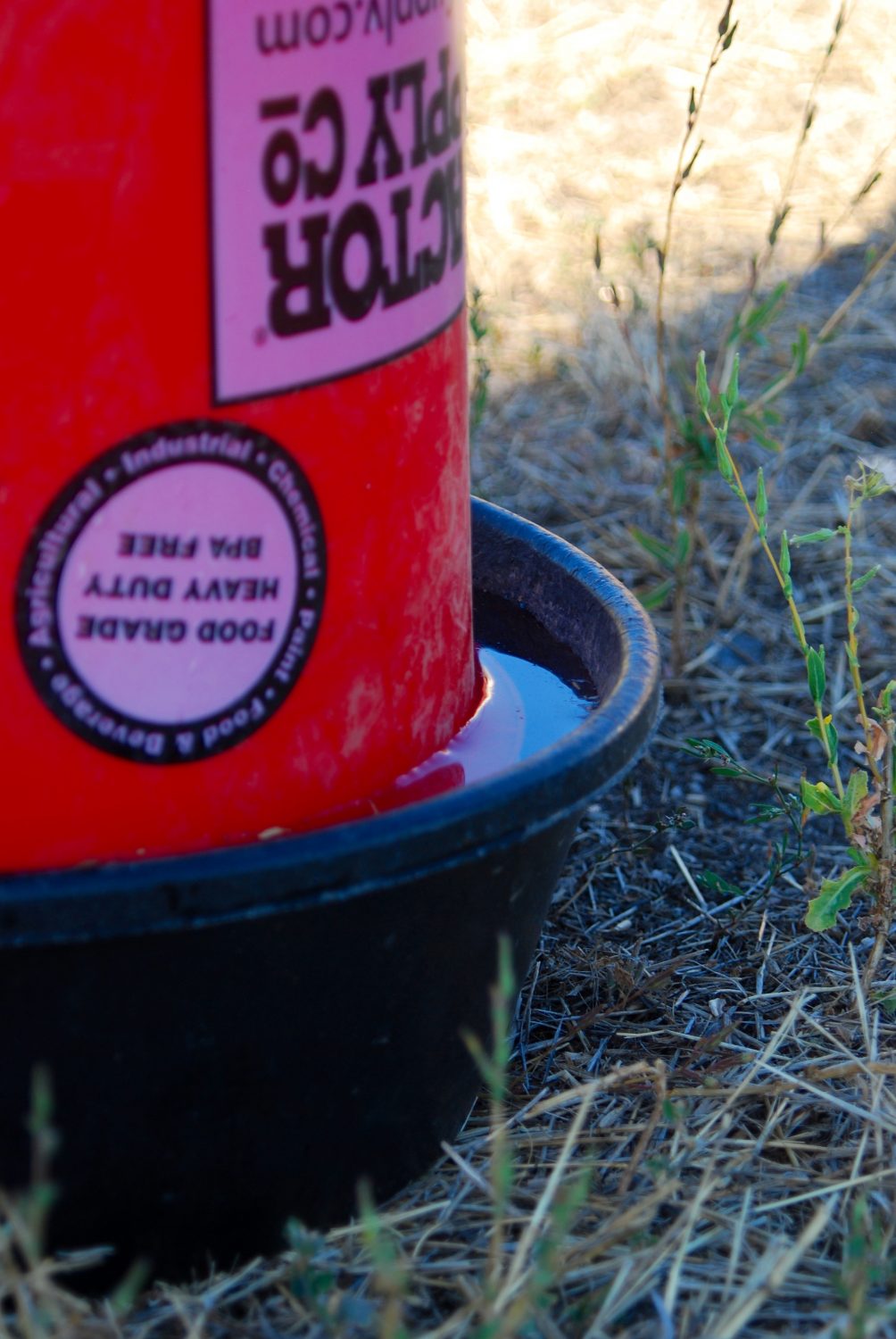




Leave a Reply